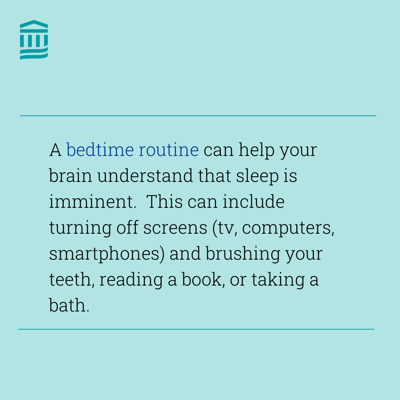Is stress making you frazzled? Here are 3 ways to tame it.
Although November 2nd has been designated as National Stress Awareness Day, the fact is that for many people, stress is a daily event and they're more than aware of how it's impacting their health. The American Psychological Association reports that chronic stress can affect all systems of the body, leading to range of issues that include high blood pressure, muscle tension, headaches, digestive problems, fatigue, and many more.
Although it's helpful to have some quick-fix remedies available, what works best is implementing healthy habits. These should address feelings of overwhelm while also preventing stress from roaring too loudly in the future. Consider putting one or more of these into place to ease tension and get into a better frame of mind:
1. Create a robust bedtime routine
 The association between high levels of stress and poor sleep is a strong one, but anyone who's struggled with getting enough shuteye knows that following a directive like "get more quality sleep" isn't easy.
The association between high levels of stress and poor sleep is a strong one, but anyone who's struggled with getting enough shuteye knows that following a directive like "get more quality sleep" isn't easy.
What does help, however, is putting together a bedtime routine that's as close as possible to being the same every night. That doesn't mean you have to implement an elaborate, hours-long process, but it does require at least 20 to 30 minutes, experts suggest. A routine like turning off screens—TVs, computers, and smartphones—and brushing your teeth, reading a book, or taking a bath, can all help your brain understand that sleep is imminent.
That way, your stress hormones—cortisol and adrenaline—begin to lower as hormones related to sleep like melatonin can begin to surge.
2. Move throughout the day
.png?width=400&height=400&name=LIZ-Posts%20wrapped%20in%20blog%20II%20(1).png) Another well-established link is between sedentary behavior and chronic stress. Regular, structured exercise is important, but for better stress control, you may want to put more "movement snacks" into your daily habits as well.
Another well-established link is between sedentary behavior and chronic stress. Regular, structured exercise is important, but for better stress control, you may want to put more "movement snacks" into your daily habits as well.
Also called high-intensity physical activity, or HIIPA, sporadic bursts of exercise three or four times a day has been shown to provide a surprising improvement in cardiorespiratory fitness, according to a study published in the journal Applied Physiology, Nutrition and Metabolism that involved brief bouts of stair climbing. In another study, published in the journal Diabetologia, people who had an "exercise snack" before each main meal had better blood sugar control compared to those who did one session of continuous, moderate-intensity exercise for a longer period of time.
In addition to improving heart health and blood sugar, these brief sessions of movement can act as mental refreshers as well, helping to lower stress overall.
3. Drink enough water
.png?width=400&height=400&name=LIZ-Posts%20wrapped%20in%20blog%20II%20(2).png) If you're feeling frazzled enough that a headache is coming on fast, your shoulders and neck are tense, and your breathing is getting shallow, it may be time for a glass of water.
If you're feeling frazzled enough that a headache is coming on fast, your shoulders and neck are tense, and your breathing is getting shallow, it may be time for a glass of water.
Although it seems like a strangely easy remedy, research backs it up. A study published in the Journal of Neuroscience looked at the effects of hydration and stress and found there's a connection. Researchers suggested it's likely related to the way water improves nervous system function, which can decrease reactivity to stressors. That means being hydrated doesn't knock stress out of your life—but it might make you less prone to feeling overwhelmed by it.
Another study, in the World Journal of Psychiatry, reported that drinking plain water is associated with decreased risk of depression and anxiety, which can both be tied to chronic stress. Research published in the journal PLoS ONE expands the benefits, with researchers noting that adequate water intake can not only lead to significant mood improvement, but also less fatigue, sharper mental function, and greater feelings of calm. There are many strategies that can lower stress overall, including meditation, yoga, being more social, and getting mental health counseling when needed. A bedtime routine, daily movement, and regular hydration are three habits that can tame the stress monster, now and into the future.
For the most up-to-date health and wellness education from Mass General Brigham Health Plan, follow us on social @MGBHealthPlan
